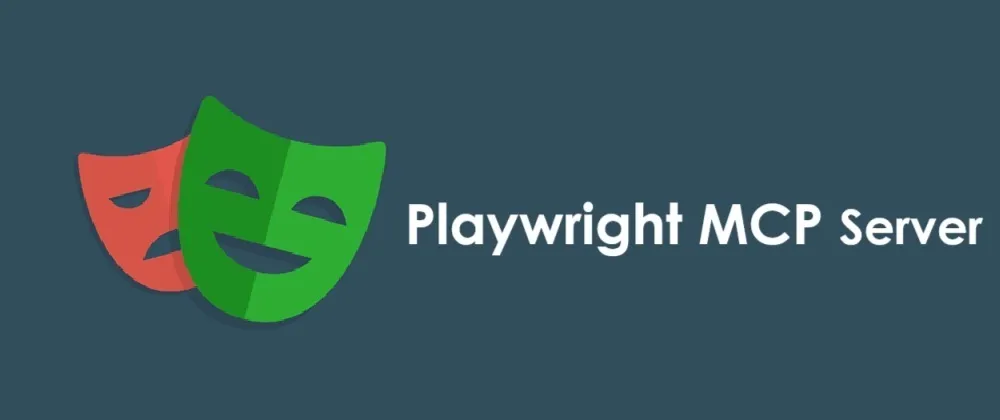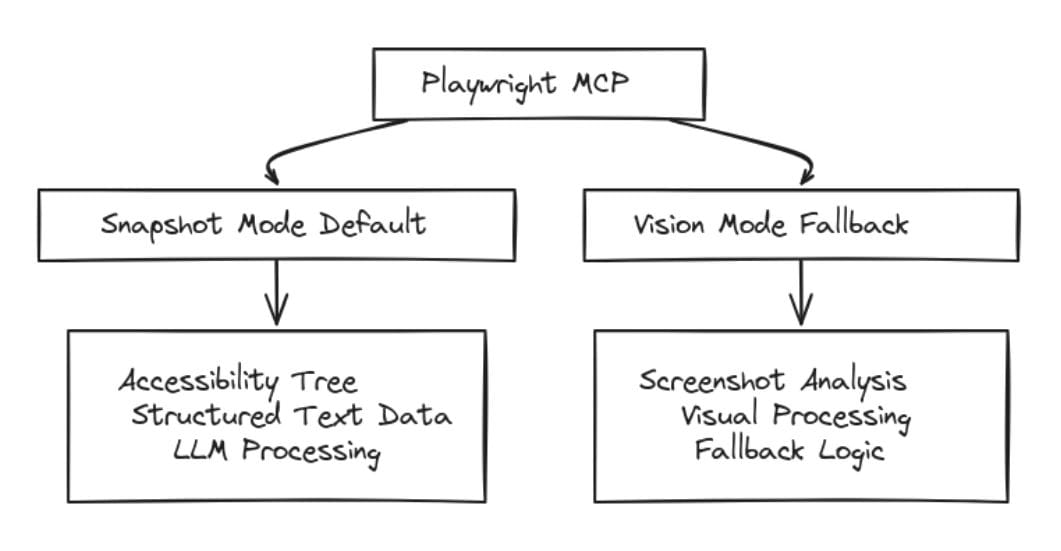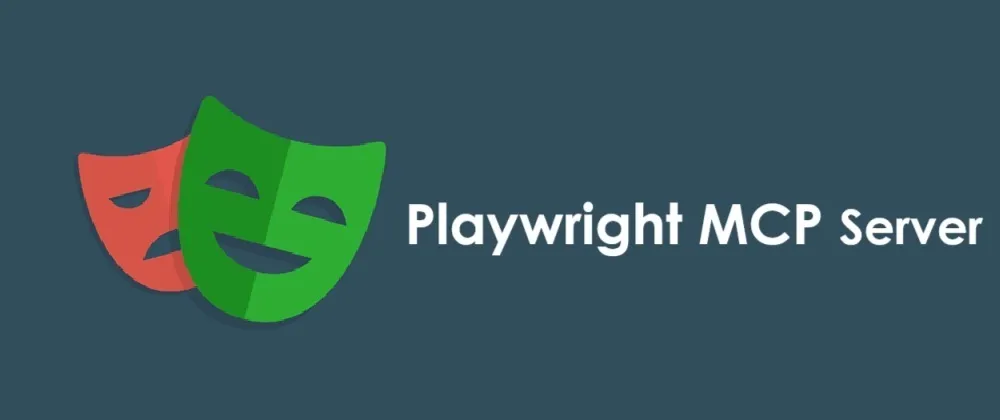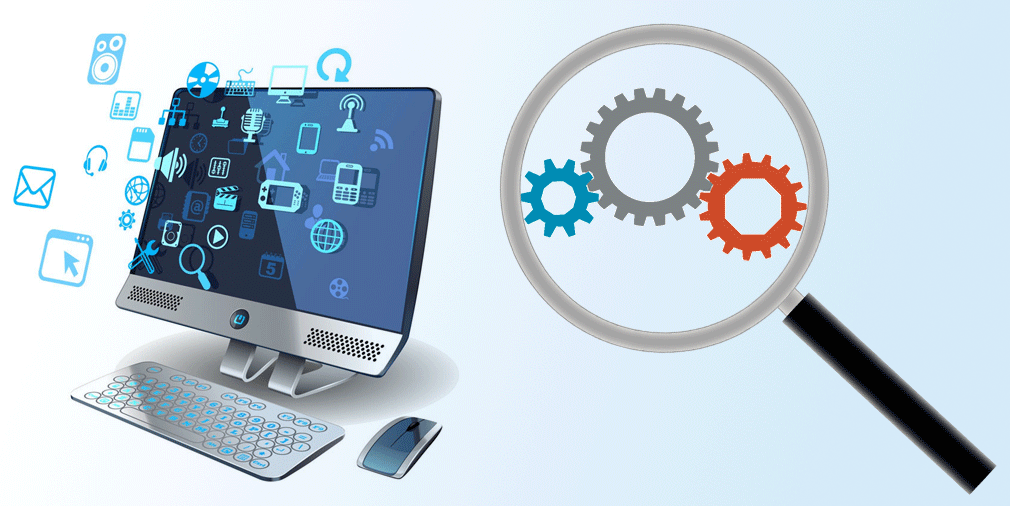Playwright MCP Reviews and Alternatives 2025

Today, AI-powered browser automation tools are changing how we interact with web interfaces, so you need solutions that work in production, not just demos.
Whether you're considering platforms like Playwright MCP or looking at more in-depth tools like Skyvern, selecting the right AI browser automation partner can make or break your production workflows. This guide breaks down everything you need to know.
TLDR:
- Playwright MCP bridges LLMs with browser automation
- Released by Microsoft in March 2025, it's primarily designed for testing scenarios
- The tool requires technical expertise and has limitations for enterprise workflows
- Skyvern offers a more complete solution with production-ready features like CAPTCHA solving and 2FA support
- Alternative tools exist, but lack the enterprise-grade features needed for complex business automation
What is Playwright MCP?
Playwright MCP is a server that acts as a bridge between Large Language Models (LLMs) or other agents and Playwright-managed browsers. It allows structured command execution, letting AI control web interactions like navigation, form filling or assertions.
The core breakthrough here is its primary reliance on the browser's accessibility tree rather than visual interpretation of screenshots. Instead of looking at web pages like a human would (through screenshots), this tool reads the underlying code structure that browsers use to help screen readers and other accessibility tools. This is much faster and more reliable because it's working with clean, organized text data rather than trying to interpret messy visual information. Think of it like reading a book's table of contents instead of flipping through pages to find what you need.
While Playwright MCP represents a step forward in AI-assisted browser automation, it's primarily focused on testing scenarios and requires technical expertise to implement well.
The system operates in two primary modes. Snapshot Mode serves as the default, using the browser's accessibility tree for structured interactions. This gets rid of the computational overhead of visual processing while providing LLMs with text-based data they can easily interpret.
Vision Mode acts as a fallback for scenarios where the accessibility tree doesn't work. However, this dual-mode approach introduces complexity that many enterprise users find challenging to work through effectively.

History and Development
Released on March 22, 2025, this project came from Microsoft's efforts to make browser automation more accessible to AI systems. Microsoft introduced support for MCP, letting tools like the Copilot Agent connect with external services.
This timing wasn't coincidental. The release of Playwright MCP aligned with Microsoft's bigger push to integrate AI features across their development ecosystem. The development shows a natural evolution of the original Playwright testing framework, extending its features beyond traditional test automation into the realm of AI-driven browser control. Microsoft released the Playwright MCP tool, a tool that empowers Large Language Models (LLMs) to interact with web pages using structured accessibility snapshots.
However, while Microsoft was developing their MCP solution, companies like Skyvern were already building complete AI browser automation platforms. Skyvern's approach goes beyond testing scenarios to solve real business problems, offering a more mature solution for enterprise workflows that require reliability, scalability, and complex reasoning features.

Playwright MCP Features and Functions
The Model Context Protocol (MCP) server lets LLMs interact with web pages through structured accessibility snapshots, bypassing the need for screenshots or visually-tuned models.
The system's Snapshot Mode is its core feature. Instead of "seeing" the page like a human (or a vision-based AI), it requests the browser's accessibility tree. This tree is a structured representation of the page content, similar to what screen readers use.
Feature | Playwright MCP | Skyvern |
|---|---|---|
Accessibility Tree Parsing | ✅ | ✅ |
Visual Element Recognition | Limited | ✅ |
CAPTCHA Solving | ❌ | ✅ |
Two-Factor Authentication | ❌ | ✅ |
Complex Workflow Chaining | Limited | ✅ |
Enterprise Support | ❌ | ✅ |
This approach offers several advantages. It's fast, lightweight and LLM-friendly since it deals with structured text data. Playwright MCP, built on Claude's Model Context Protocol (MCP), lets testers automate browser actions and API calls using plain English commands.
Why Playwright MCP Falls Short for Enterprise Automation
Despite its technical advances, Playwright MCP has several limitations that make it not suitable for enterprise-scale automation needs. The dependency on external models creates reliability concerns, especially when your LLMs (like Claude) are cloud-based.
Network reliability and access issues become key pain points. You need fallback strategies in place, which adds complexity to an already technical implementation process.
The default Snapshot Mode is generally recommended due to its speed and reliability for most common web automation tasks like navigation, form filling and data extraction from structured content. Vision Mode serves as a fallback or specialized tool for scenarios where the accessibility tree is insufficient.
The setup complexity is another major obstacle. To use Playwright MCP, you need Node.js and npm (or npx) installed on your system. These are the foundation software that Playwright MCP runs on top of, similar to how you need Microsoft Word installed before you can open a .docx file.
Skyvern solves these limitations by providing a simple API endpoint that handles complex workflows without requiring deep technical knowledge. With built-in support for authentication, file handling and multi-step processes, Skyvern delivers enterprise-grade automation that Playwright MCP simply cannot match.
Playwright MCP treats browser automation as a testing problem rather than a business process challenge.
Skyvern: The Complete AI Browser Automation Solution
Skyvern helps companies automate browser-based workflows using LLMs and Computer Vision, fully automating manual workflows and replacing brittle or unreliable scripts. Unlike Playwright MCP's testing-focused approach, Skyvern is designed from the ground up for production business automation.
Skyvern can operate on websites it's never seen before, as it's able to map visual elements to actions needed to complete a workflow, without any customized code. Skyvern is able to take a single workflow and apply it to a large number of websites, as it's able to reason through the interactions for the workflow.
What sets Skyvern apart is its full feature set designed for real business needs:
- Native CAPTCHA solving features
- Two-factor authentication support with TOTP
- Proxy network features with geographic targeting
- Explainable AI that provides clear decision justifications
- File downloading with automatic cloud storage
- Complex reasoning through LLM interactions
Skyvern offers both cloud-managed and self-hosted options, making it accessible to teams of all technical levels. The platform's ability to handle complex workflows like materials procurement, invoice processing and government form filling shows its superiority over testing-focused solutions.
The difference is night and day when you compare a testing tool trying to do business automation versus a platform built for enterprise workflows.

Alternative AI Browser Automation Tools
- Axiom - Visual workflow builder for basic automation, but lacks AI-powered reasoning
- Cheat Layer - AI-powered platform with natural language processing and semantic targeting, but limited enterprise features
- Browser Use - Code-free automation for repetitive tasks, but missing advanced business workflow capabilities
Key limitations of most alternatives:
- Focus on simple tasks rather than complex workflows
- Lack proper authentication handling
- Missing enterprise-grade reliability
- Treat automation as a consumer problem, not an enterprise challenge
FAQ
What is the main difference between Playwright MCP and traditional browser automation?
Playwright MCP uses accessibility trees instead of visual screenshots, making it faster and more LLM-friendly. Traditional tools rely on XPath selectors that break when websites change, while MCP provides structured text data that AI can process more effectively.
Can Playwright MCP handle complex business workflows?
No, Playwright MCP is primarily designed for testing scenarios. It lacks enterprise features like CAPTCHA solving, two-factor authentication and complex workflow chaining that businesses need for production automation.
Is Playwright MCP suitable for non-technical users?
Playwright MCP requires Node.js installation and technical setup, making it unsuitable for business users. It's designed for developers and testers rather than end-users who need simple automation solutions.
How does Skyvern compare to Playwright MCP for enterprise use?
Skyvern offers complete business automation features including CAPTCHA solving, 2FA support, proxy networks, and explainable AI. Unlike Playwright MCP's testing focus, Skyvern is built for production workflows and offers both cloud and self-hosted options.
What are the main limitations of Playwright MCP?
Playwright MCP depends on external LLM services, requires technical expertise for setup, lacks enterprise security features, and is primarily designed for testing rather than business process automation.
Conclusion
While Playwright MCP is useful for testing, it can't handle real business needs like authentication, changing layouts and enterprise security.
With the right AI browser automation platform like Skyvern, you can automate invoice downloads, procurement workflows and form filling across any website through a single API. Built-in CAPTCHA solving and two-factor authentication support mean your automation keeps running when traditional scripts fail.
The bottom line is you can change manual browser work into intelligent automation that actually works for your business.

